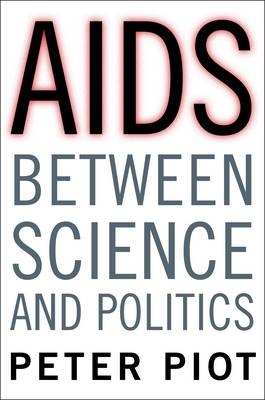
AIDS Between Science and Politics
Columbia University Press (Verlag)
978-0-231-16626-3 (ISBN)
Peter Piot, founding executive director of the Joint United Nations Programme on HIV/AIDS (UNAIDS), recounts his experience as a clinician, scientist, and activist fighting the disease from its earliest manifestation to today. The AIDS pandemic was not only catastrophic to the health of millions worldwide but also fractured international relations, global access to new technologies, and public health policies in nations across the globe. As he struggled to get ahead of the disease, Piot found science does little good when it operates independently of politics and economics, and politics is worthless if it rejects scientific evidence and respect for human rights. Piot describes how the epidemic altered global attitudes toward sexuality, the character of the doctor-patient relationship, the influence of civil society in international relations, and traditional partisan divides. AIDS thrust health into national and international politics where, he argues, it rightly belongs. The global reaction to AIDS over the past decade is the positive result of this partnership, showing what can be achieved when science, politics, and policy converge on the ground.
Yet it remains a fragile achievement, and Piot warns against complacency and the consequences of reduced investments. He refuses to accept a world in which high levels of HIV infection are the norm. Instead, he explains how to continue to reduce the incidence of the disease to minute levels through both prevention and treatment, until a vaccine is discovered.
Peter Piot is the director of the renowned London School of Hygiene and Tropical Medicine and a professor of global health. He is a former Under Secretary General of the United Nations, the founding executive director of UNAIDS, and co-discoverer of the Ebola virus, and former president of the International AIDS Society. He has published more than 500 scientific papers and articles and sixteen books, including his memoirs, No Time To Lose: A Life in Pursuit of Deadly Viruses. Laurence Garey is an anatomist, former member the Court of Examiners, Royal College of Surgeons of England, and the Council of the Anatomical Society. He has translated works from French and German, including Jean-Didier Vincent and Pierre-Marie Lledo's The Custom-Made Brain: Cerebral Plasticity, Regeneration, and Enhancement. He is an associate collaborator with the Institute of the History of Medicine and Public Health at the University of Lausanne, Switzerland.
Translator's Note Acknowledgments Introduction 1. A Heterogeneous and Still-Evolving Epidemic 2. Hyperendemic HIV in Southern Africa: The Heritage of Apartheid 3. AIDS as an International Political Issue 4. A New Type of Transnational Civil Society Movement 5. The Right to Treatment 6. Combination Prevention 7. The Economics of AIDS 8. Prominence of Human Rights 9. The Long-Term View Notes Index
| Erscheint lt. Verlag | 5.5.2015 |
|---|---|
| Übersetzer | Laurence Garey |
| Zusatzinfo | 22 b&w figures |
| Verlagsort | New York |
| Sprache | englisch |
| Maße | 152 x 229 mm |
| Themenwelt | Medizin / Pharmazie ► Allgemeines / Lexika |
| Medizin / Pharmazie ► Gesundheitswesen | |
| Studium ► Querschnittsbereiche ► Infektiologie / Immunologie | |
| Studium ► Querschnittsbereiche ► Prävention / Gesundheitsförderung | |
| ISBN-10 | 0-231-16626-5 / 0231166265 |
| ISBN-13 | 978-0-231-16626-3 / 9780231166263 |
| Zustand | Neuware |
| Haben Sie eine Frage zum Produkt? |
aus dem Bereich


